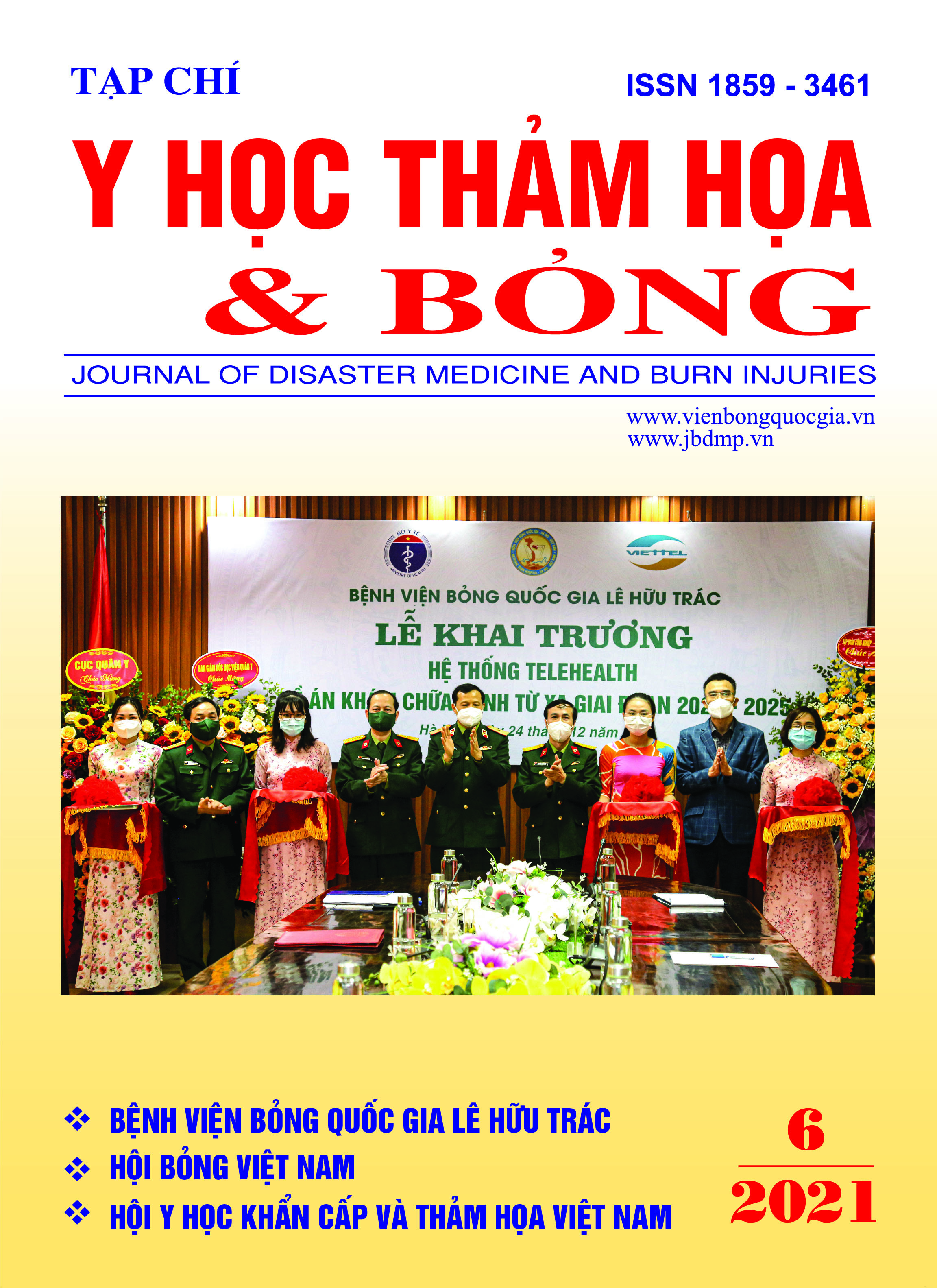Influences of Propranolol on outcomes of severely adult burn patients.
Main Article Content
Abstract
This study evaluated the influence of Propranolol on outcomes of severely adult burn patients. A randomized controlled trial was on 124 patients who were divided into two groups: Control group (A) received conventional treatment, study group (B) was treated with Propranolol.
The result indicated that, along the time, the heart rate of the study group steadily decreased and was significantly lower than that of the control group (90.24 ± 11.51 vs. 101.43 ± 13.69 bpm; p < 0,01 at 28th-day afterburn). From the 7th day onward afterburn, the body temperature of both groups decreased and the temperature was significantly lower than that in the control group (p < 0.05). Hematological parameters, mean arterial pressure, complication rate and treatment time were not remarkably different between the two groups (p > 0.05). There was also no significant difference in mortality between groups (19.35% vs 17.74%; p > 0.05).
Article Details
Keywords
Propranolol, severe burn, adult, outcomes
References
2. Oberbeck R. Therapeutic implications of immune-endocrine interactions in the critically ill patients. Curr Drug Targets Immune Endocr Metabol Disord 2004; 4:129-139.
3. Oberbeck R, Schmitz D, Wilsenack K, et al. Adrenergic modulation of survival and cellular immune functions during polymicrobial sepsis. Neuroimmunomodulation 2004; 11:214-223.
4. Herndon DN, Rodriguez NA, Diaz EC, et al. Long-term propranolol use in severely burned pediatric patients: a randomized controlled study. Annals of surgery 2012; 256(3):402-411.
5. Williams FN, Herndon DN, Kulp GA, et al. Propranolol decreases cardiac work in a dose-dependent manner in severely burned children. Surgery 2011; 149(2):231-239.
6. Lunawat A, Vishwani A, Datey S, et al. Modulation of hypermetabolism in burn patient by administration of propranolol in the first two weeks and assessing its effect by using clinical and biochemical parameters. Indian Journal of Burns 2015; 23(1):19-25.
7. Kobayashi M, Jeschke MG, Asai A, et al. Propranolol as a modulator of M2b monocytes in severely burned patients. Journal of leukocyte biology 2011; 89(5):797-803.


